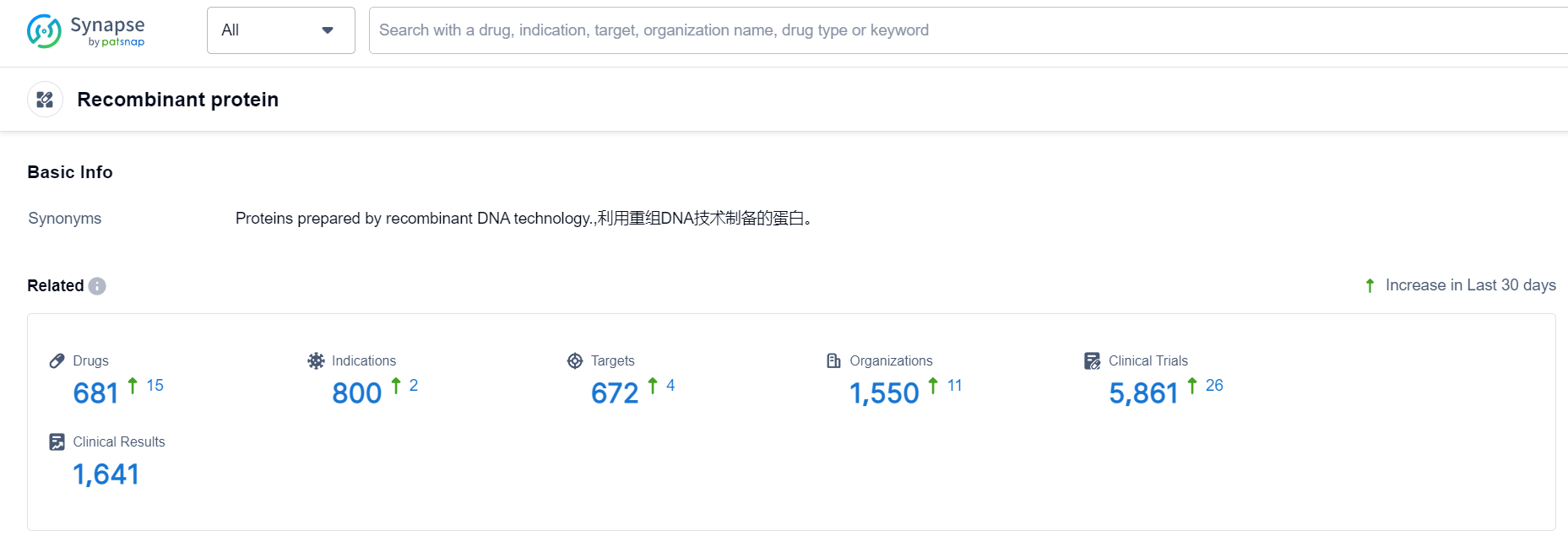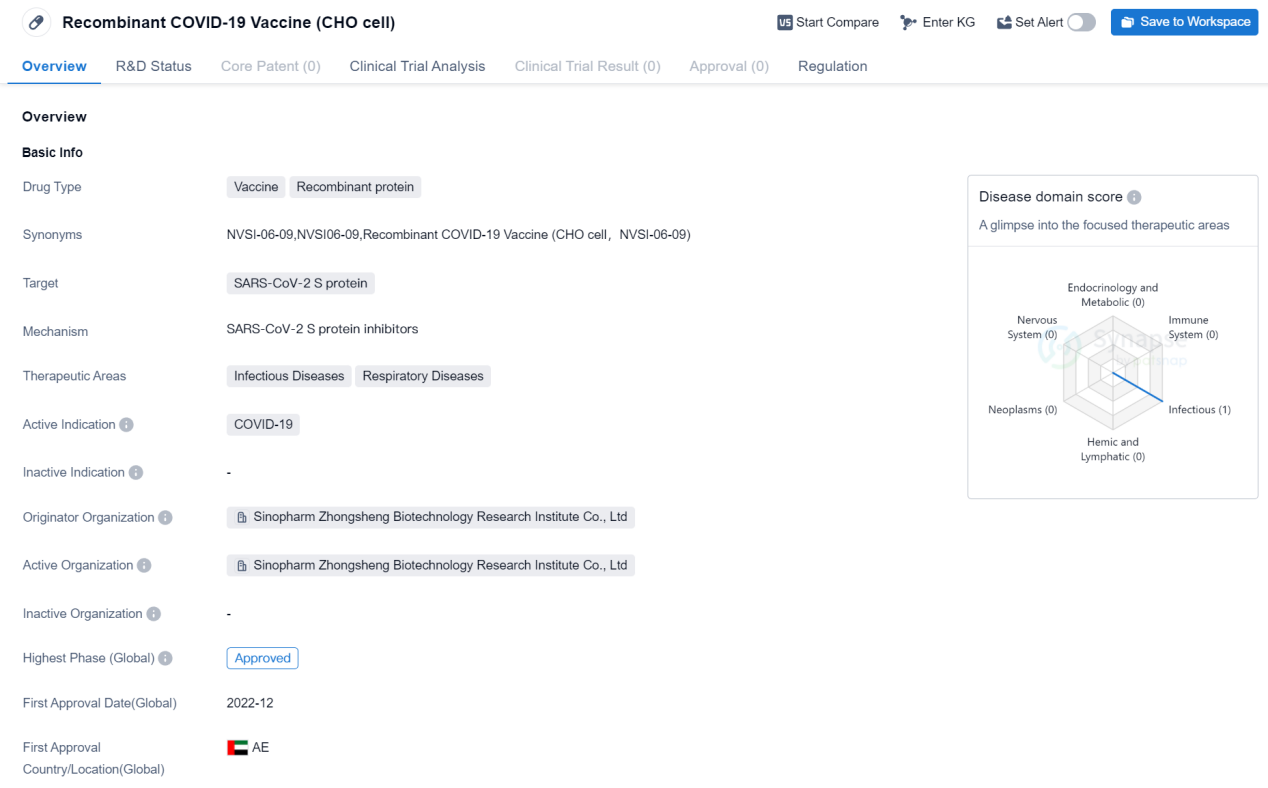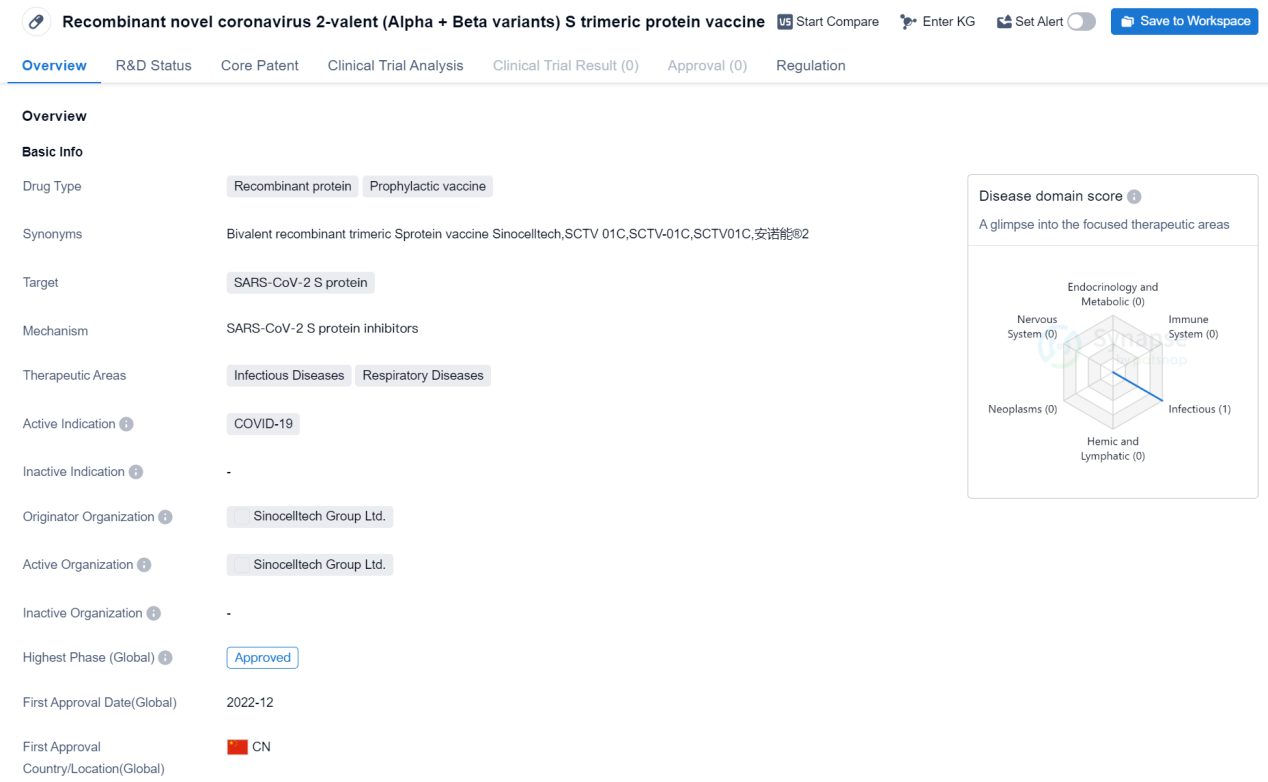Analysis on the Research Progress of Recombinant Protein
Recombinant protein refers to the protein obtained using recombinant DNA or RNA technology. The process of recombinant protein engineering first employs gene cloning or chemical synthesis techniques to obtain the target gene (GOI), connects it to a suitable expression vector, introduces it into a specific host cell, and uses the genetic system of the host cell to express functional protein molecules.
The main technologies in the field of recombinant protein include recombinant DNA technology, nucleic acid technology, and biofermentation technology, among others. The development and application of new technologies will promote the development of the recombinant protein industry, improve product quality and production capacity, and also drive the continuous expansion of the market. For example, the emergence of CRISPR gene editing technology allows scientists to perform gene editing more efficiently, providing more possibilities for drug research and production. At present, recombinant protein reagents have been widely used in the research and production of biopharmaceuticals, cell immunotherapy, and diagnostic reagents. Recombinant protein drugs are an important component of biological drugs and are often widely used in the medical field, including cancer treatment, immune regulation, neuroprotection, connective tissue diseases, kidney disease treatment, etc.; these include cytokines, therapeutic antibodies, vaccines, hormones, and enzymes.
Recombinant protein Competitive Landscape
According to Patsnap Synapse, as of 24 Sep 2023, there are a total of 681 Recombinant protein drugs worldwide, from 1550 organizations, covering 672 targets, 800 indications, and conducting 5861 clinical trials.
👇Please click on the picture link below for free registration or login directly if you have freemium accounts, you can browse the latest research progress on drugs , indications, targets, organizations, clinical trials, and clinical results related to this drug type.
Approved Recombinant protein Medicinal: Recombinant COVID-19 Vaccine
The Recombinant COVID-19 Vaccine (CHO cell) is a vaccine that falls under the category of recombinant protein drugs. It is specifically designed to target the SARS-CoV-2 S protein, which is the main protein responsible for the entry of the virus into human cells. The therapeutic areas that this vaccine focuses on are infectious diseases and respiratory diseases, with its active indication being COVID-19.
The originator organization behind the development of this vaccine is Sinopharm Zhongsheng Biotechnology Research Institute Co., Ltd. This organization has successfully reached the highest phase of drug development. The first approval of this vaccine on a global scale took place on December 2022, with the United Arab Emirates being the country/location where it was first approved.
In terms of regulation, the Recombinant COVID-19 Vaccine (CHO cell) has obtained Emergency Use Authorization. This means that the vaccine has been granted permission for use in emergency situations, such as during a pandemic, where the benefits of its use outweigh the potential risks.
Overall, the Recombinant COVID-19 Vaccine (CHO cell) is a significant development in the field of biomedicine. Its approval and emergency use authorization highlight its potential effectiveness in combating the COVID-19 pandemic. As a recombinant protein vaccine, it specifically targets the SARS-CoV-2 S protein, which is crucial for the virus's entry into human cells. With its focus on infectious and respiratory diseases, this vaccine has the potential to make a significant impact in controlling the spread and severity of COVID-19. The approval in the United Arab Emirates serves as a testament to its safety and efficacy, and it is expected to be a valuable tool in the global fight against the ongoing pandemic.
👇Please click on the image below to directly access the latest data (R&D Status | Core Patent | Clinical Trial | Approval status in Global countries) of this drug.
Recombinant novel coronavirus 2-valent (Alpha + Beta variants) S trimeric protein vaccine
The Recombinant novel coronavirus 2-valent (Alpha + Beta variants) S trimeric protein vaccine is a prophylactic vaccine that falls under the category of recombinant protein drugs. It is designed to target the SARS-CoV-2 S protein, which is responsible for the COVID-19 infection. The therapeutic areas for this vaccine are infectious diseases and respiratory diseases, as these are the primary areas affected by the COVID-19 pandemic.
The drug is developed by Sinocelltech Group Ltd., an originator organization in the pharmaceutical industry. It has reached the highest phase of development. The first approval for this vaccine was granted in China, with the date of approval being December 2022. The regulatory status of the vaccine is Emergency Use Authorization, indicating its urgency and importance in combating the COVID-19 pandemic.
👇Please click on the image below to directly access the latest data (R&D Status | Core Patent | Clinical Trial | Approval status in Global countries) of this drug.
In summary, the Recombinant novel coronavirus 2-valent (Alpha + Beta variants) S trimeric protein vaccine is a prophylactic vaccine developed by Sinocelltech Group Ltd. It targets the SARS-CoV-2 S protein and is indicated for the treatment of COVID-19. It has received approvals in China, with the first approval granted in December 2022. The vaccine falls under the category of recombinant protein drugs and is regulated under Emergency Use Authorization.







